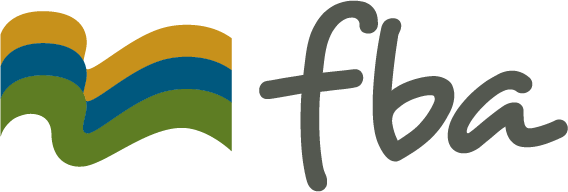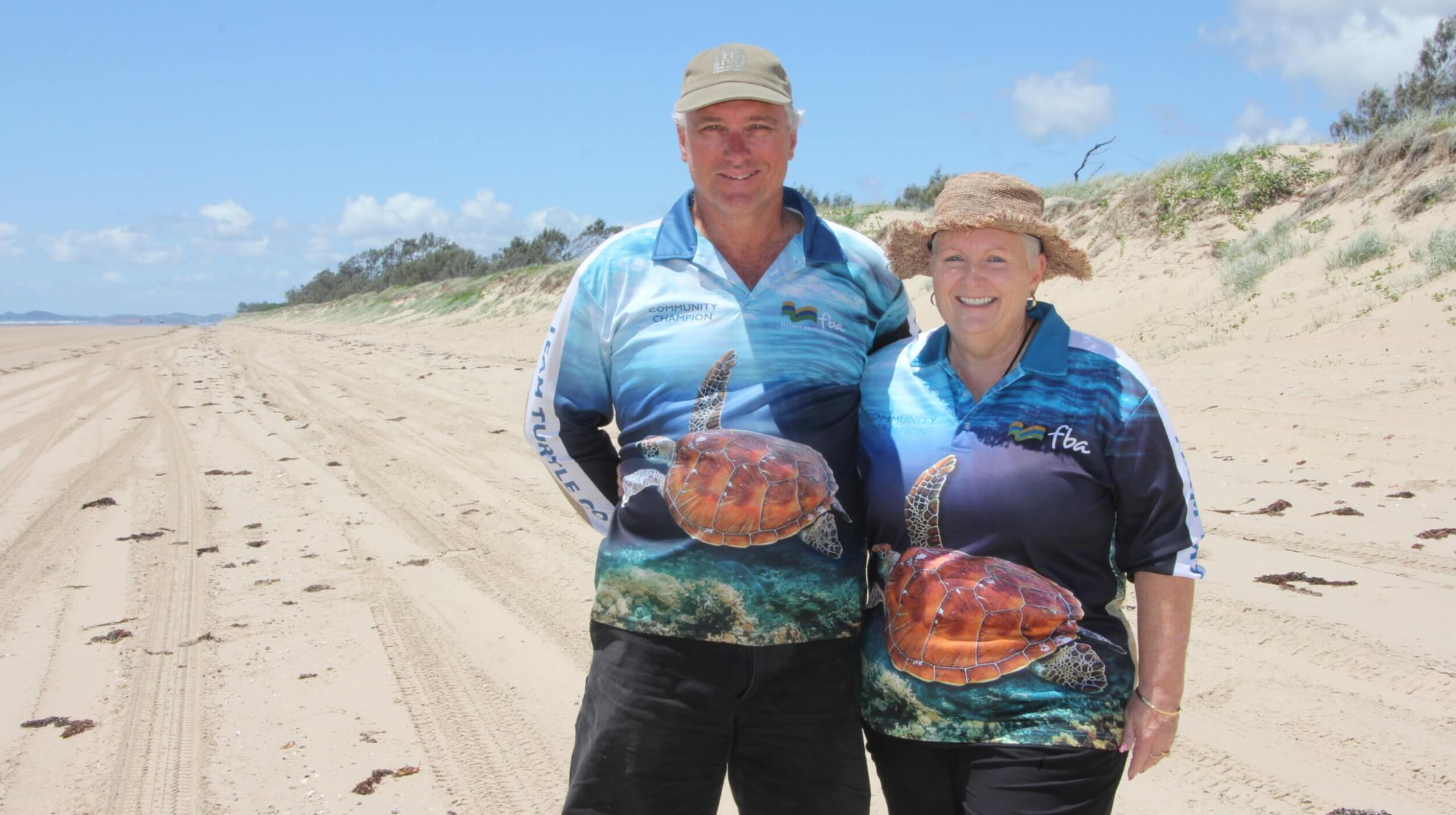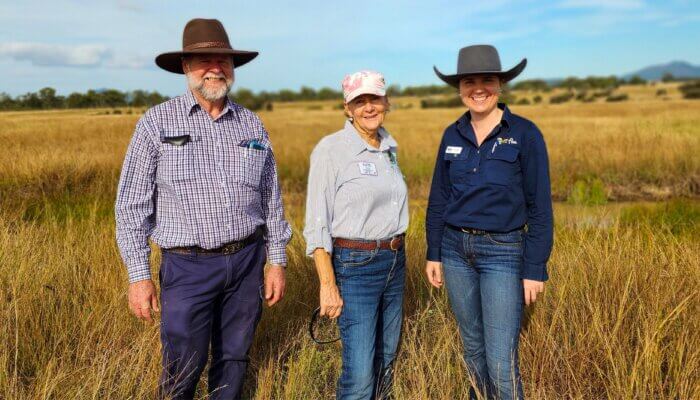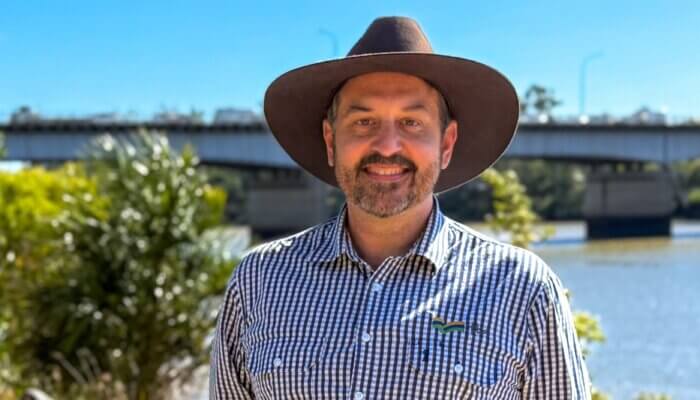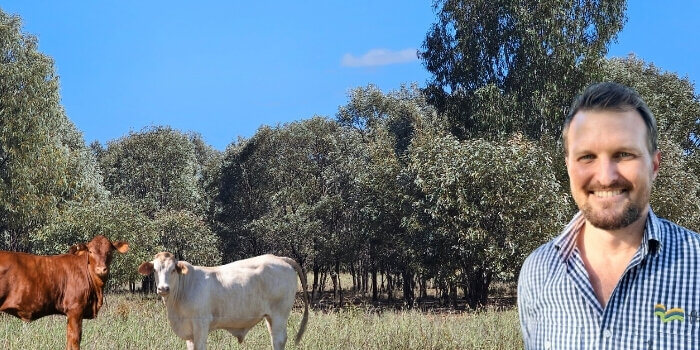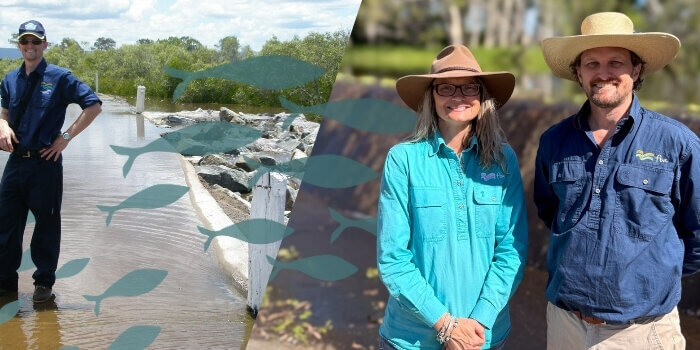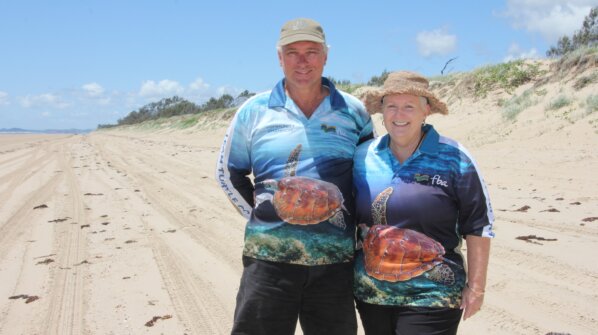
A Day in the Life of a Team Turtle CQ Volunteer
Posted on February 4th, 2025
Checking the tides over their morning cup of coffee is how passionate Team Turtle CQ (TTCQ) volunteers Karen Bowen Giles and Ronald Hart start their day before hitting the beach to monitor marine turtle activity.
TTCQ is a citizen science marine monitoring program that relies on volunteers to record data on marine turtle nesting and hatching activity along the Capricorn and Curtis Coasts. This data informs species management efforts as it is shared with the Queensland Turtle Conservation Program.
Turtle monitoring requires TTCQ volunteers to carefully scan the entire beach from water’s edge to the top of the dunes, looking for turtle tracks, signs of a nest laid, or a nest already emerged, or any other nest disturbance or predation. This data is entered into BioCollect, an Atlas of Living Australia mobile app used by TTCQ.
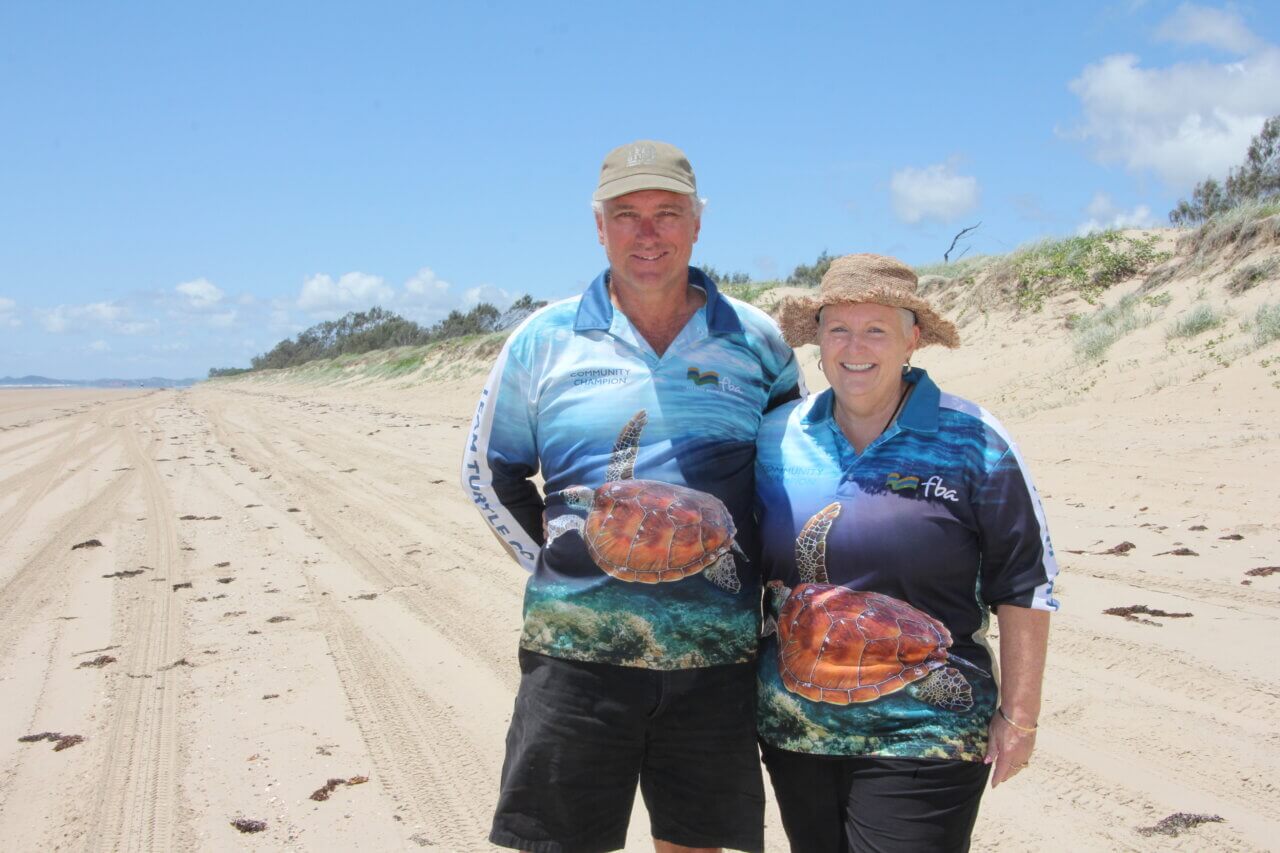
Karen and Ronald help to monitor marine turtle activity on more than 20km of Capricorn Coast beaches.
The couple help to monitor Farnborough Beach, from the Bangalee beach access up to Sandy Point, and Nine Mile Beach, as well as the Keppel Islands via boat.
They slowly drive up and down the beach and check for all signs of obvious tracks or turtle disturbances. This can be tricky as Farnborough is “very weather worn” and turtle tracks can quickly disappear.
“You only need one tide, a little bit of wind and rain, and you won’t see the tracks,” Karen said.
“To identify a nest with no tracks you have to look for a disturbance in the dunes or a body pit down below the dunes.”
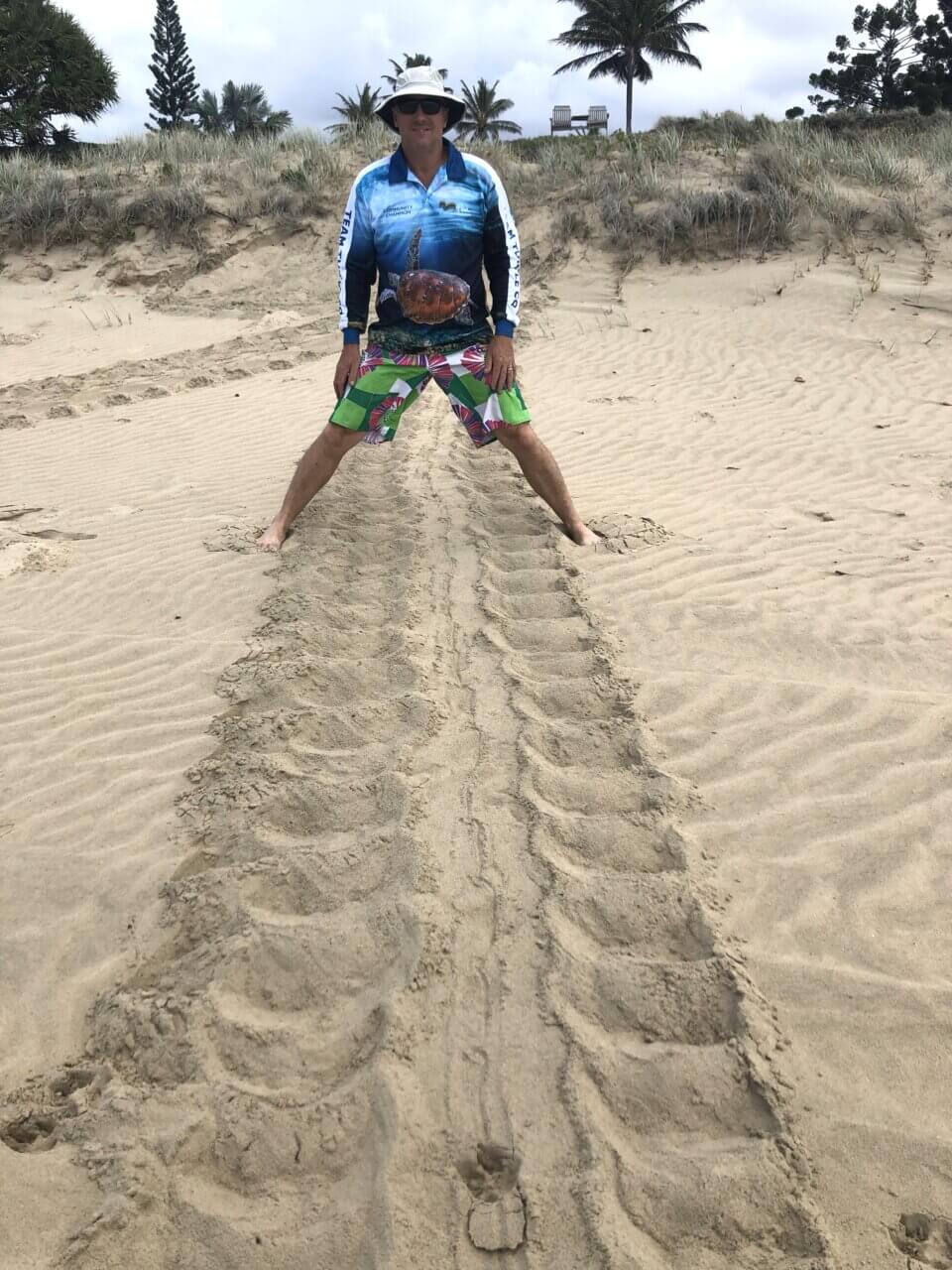
This important and often difficult work is carried out by Karen and Ronald at least once a fortnight. However, when and where they monitor is dependent on the tides.
“It’s not as easy as just walking a beach,” Karen said.
“We must make sure we are not caught on the beach and endangering ourselves and our vehicle or marine turtles by driving on areas where they are known to nest.”
For Karen and Ronald, the job doesn’t end at data collection, they are also trained stranding responders, which is separate from TTCQ. They respond to marine wildlife strandings calls for injured, ill or deceased turtles and work with other TTCQ volunteers, from recording data at a live nesting to checking on already reported nests.
“Whenever we have to attend to a deceased turtle it is always heartbreaking,” Karen said.
“It is amazing to see these beautiful turtles nesting and laying their eggs.”
‘LEAVE NOTHING BUT YOUR FOOTPRINT AT THE BEACH’
Karen and Ronald started volunteering with TTCQ about four years ago after meeting the volunteer conservation group at their very first beach clean-up on Farnborough Beach in 2020 following a not so picture-perfect holiday to the Maldives.
The couple went on their bucket list holiday to the Maldives in 2019 and were left disgusted at the water pollution.
“The beaches were piled high with debris and rubbish and plastics,” she said.
“When we got back it was very important for us to appreciate our own backyard.”
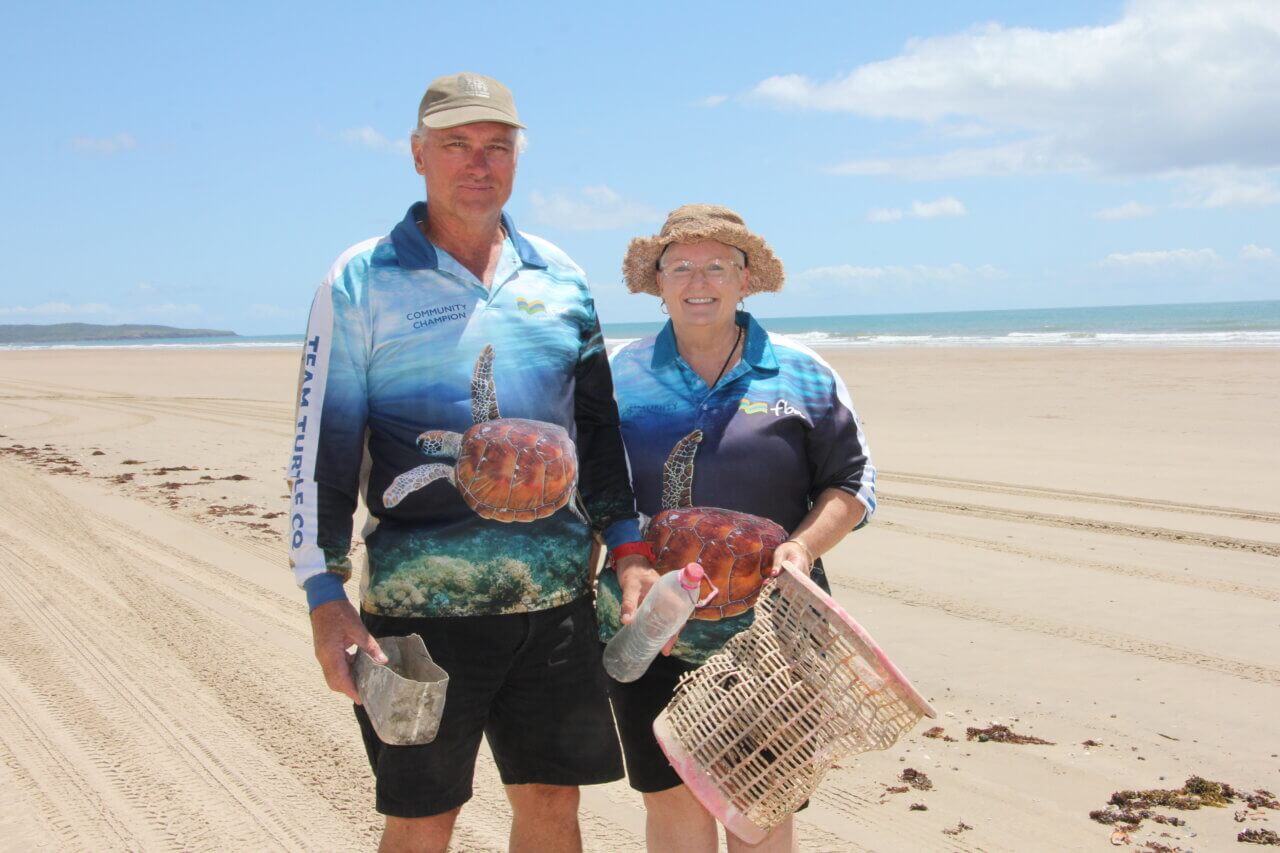
Turtles aren’t the only thing the couple look out for when monitoring the Capricorn Coast beaches.
They also lookout for plastics, rubbish, marine debris and anything that doesn’t belong.
Just the other week, they collected a boat hook, rope, flippers, a jar of ginger, bottles and a Thomas the Tank Engine toy.
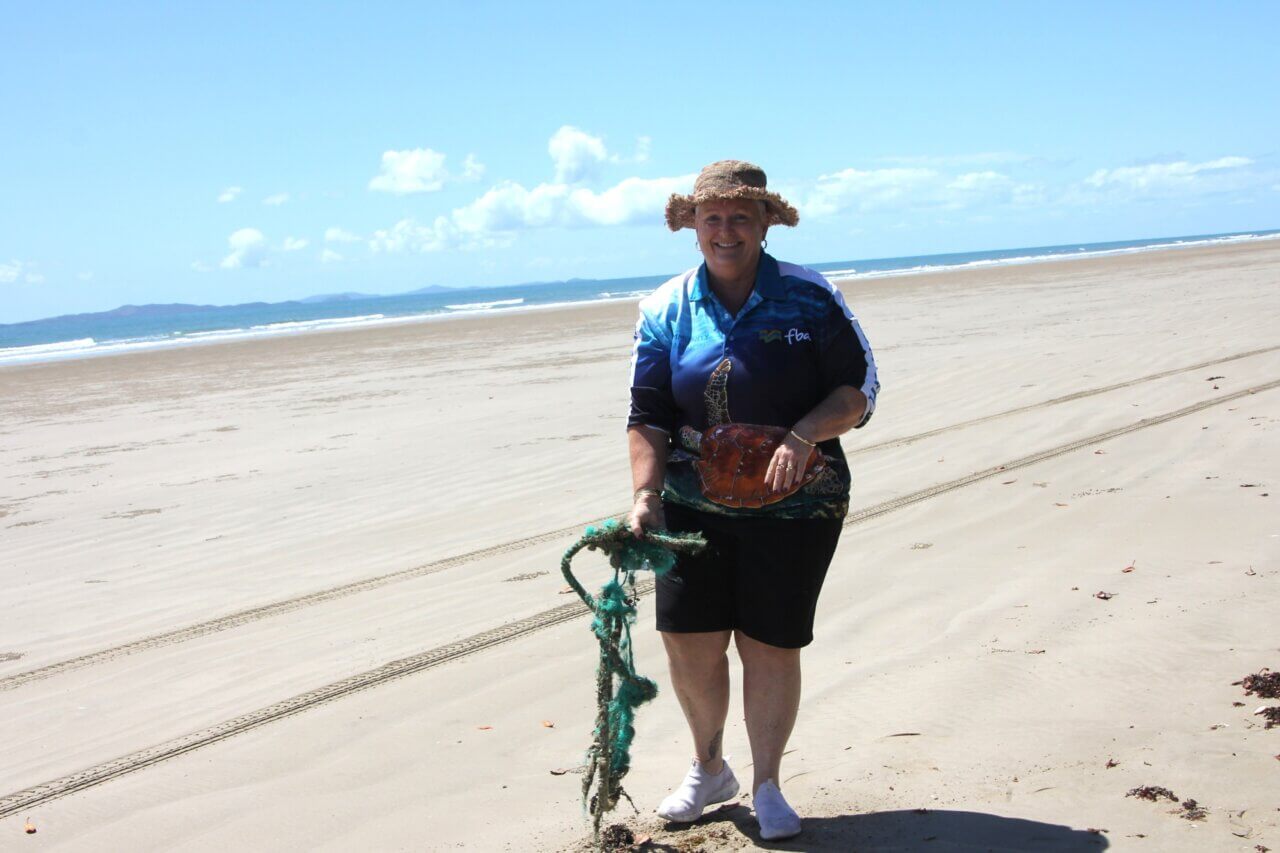
“We worry about the number of plastics, rubbish and marine debris on the beaches because our turtles ingest the microplastics that comes from leaving things like drink bottles, thongs, sporting equipment, fishing equipment,” Karen said.
“Whenever we see anything that doesn’t belong, we pick it up for correct disposal.
“Water bottles, thongs and toothbrushes are the most common.
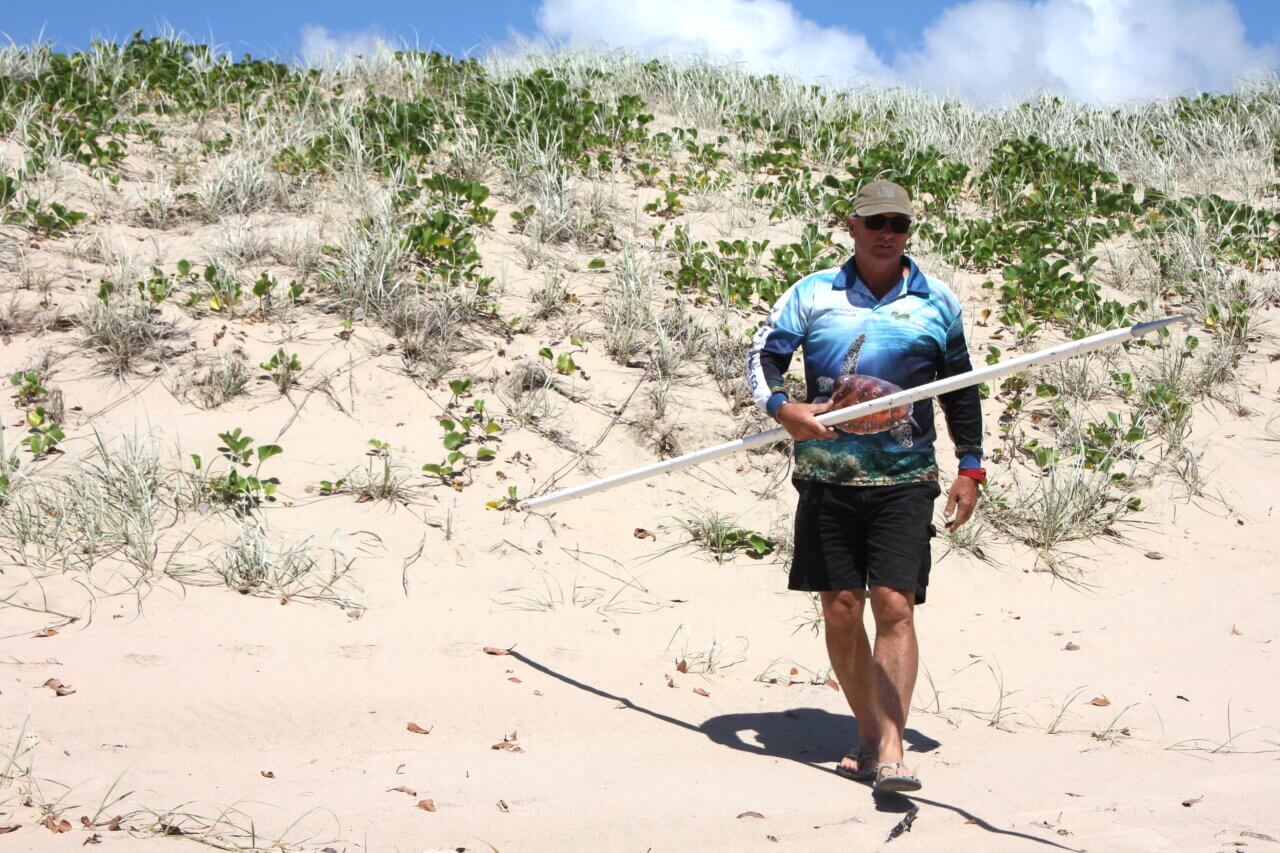
“Just try to remember to leave nothing but your footprint at the beach.”
She said volunteering for TTCQ gives her a “feeling of satisfaction that we are helping to look after our environment and our marine life, particularly turtles”.
Here is a message from Karen around marine debris:
‘EVERYTHING YOU DO MATTERS’
TTCQ Project Officer Tonya Wilson works with and supports more than 35 volunteers (including Karen and Ronald) that monitor our Capricorn Coast beaches between October and March each year.
During the 2023-24 breeding season, 85 active TTCQ volunteers monitored 45 beaches along the Capricorn and Curtis Coasts and recorded 599 tracks, 431 nests and 283 emerged clutches.
Of those 599 tracks, 589 were from flatbacks, six were from greens and four were from loggerheads.
In a volunteering capacity, Tonya walks the beach every day (sometime twice a day) during turtle season.
She also works with the Team Hatchlings kids, raising awareness on the effects light pollution has on marine turtles.
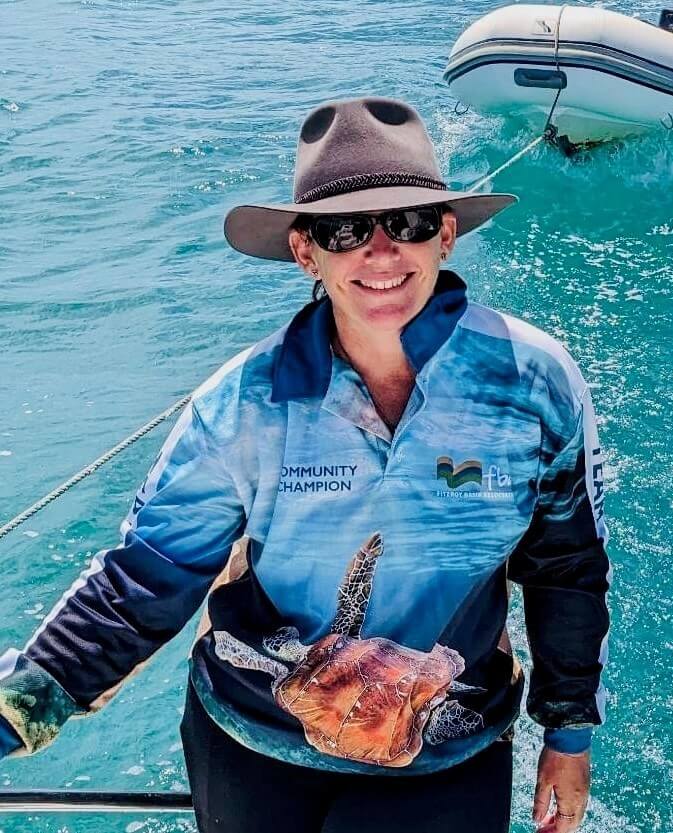
“Our family hold marine turtles very close to our heart, we will always do everything we can to ensure that they continue to return to our beaches for generations to come,” she said.
“Flatback turtles that nest here are endemic to Australia, how special is that and only one in 1000 hatchlings will ever survive to adulthood.
“That is a scary thought for their future.
“Act as if everything you do matters because it does.
“As the Team Hatchlings kids say, ‘Turtles About So Lights Out’.”
HOW YOU CAN HELP
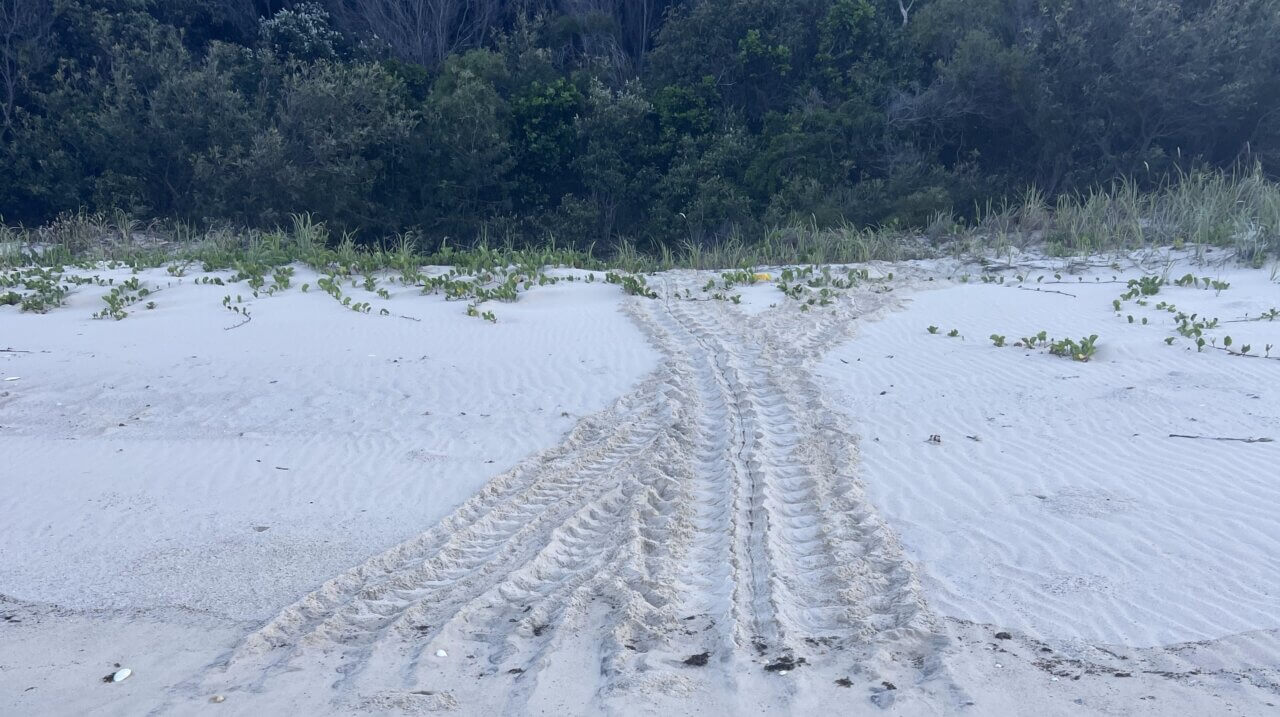
We are currently in the middle of turtle nesting season.
Karen wants to remind the community to not interfere with any nesting, drive on the wet sand only and reduce light pollution.
“If we can all work together to help our backyard and beautiful marine animals, especially the turtles, that would be wonderful,” she said.
If you see a turtle nesting, or find a track, you can report this to FBA online at fba.org.au/marine-turtle-season-report-a-sighting
If you see a sick or injured turtle, report it using the QWildlife app or call 1300 130 372 (Press option 1).
